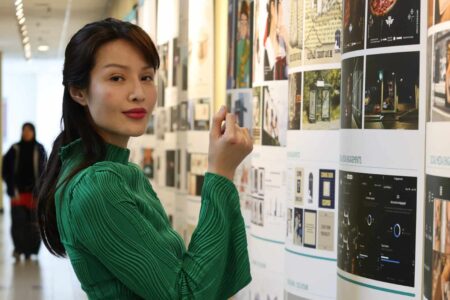
“They wouldn’t send me to school,” my grandmother said.
“They couldn’t afford uni for me,” my mother said.
Education was my grandmother’s birthright stolen.
She could not read a single word besides the letters A, B, and C in her 75 years of life. Her illiteracy was a debilitating, unending struggle. It ate away and shamed her.
Despite a matriarch, few took her seriously in consequential family matters. When seeking her share of an inheritance, others manipulated her lack of comprehension to deny her of it.
When she fell victim to diabetes for decades, culminating in her being bedridden in her last living months, any information that would have alleviated her suffering and empowered her well-being was nothing more than mere scribbles on a screen or book.
My mother was — marginally — more privileged. She got to learn how to read and write.
But, after high school, when her peers went to universities in the capital or other Commonwealth countries, her options were limited to odd jobs, secretary work or teacher’s training college.
When you’re a girl from a family making US$1,000 a year, a three-year university education costing at least twice that is out of the question.
So where others became judges and ministers, my mum, who has all the acumen and charisma worthy of a Fortune 500 CEO, sacrificed 30 years of her life to become a teacher to raise me and my siblings.
It is 2024 and I wish I did not need to tell their stories of narrow, stifled paths defined not by them, but by prejudices and poverty.
And the world did make great strides since:
- Out of 195 countries, 49% of countries have achieved gender parity in primary education, with 49% of 37.9 million out-of-school children and adolescents accessing education in 2022.
- In 2021, 44% of bachelor’s and master’s international students in the US were female, and 40% were PhD candidates.
- The proportion of women in senior management roles globally grew to its highest ever recorded in 2022: 32% in 2022.

The importance of women education can be seen in this photo. Two women presidents, Gloria Arroyo of the Philippines (center-L) and Megawati Sukarnoputri of Indonesia (center-R) at a 2003 summit in Kuala Lumpur. In 2022, women still made up only 32% of senior management roles globally. Source: AFP
The issue is these can be seen as wins but the figures above can’t hide the big gaps that remain. Every year, on International Women’s Day and like a broken record, publications and leaders repeat the need to hasten progress.
But the need appears greater still this year.
Factor in more countries increasingly led by fanatics, despots and way too many white, geriatric old men, and the fact that we don’t have enough smart girls with the know-how to navigate the world becomes an urgent problem.
So I tell the stories of what my grandmother and mother lacked in their education as a prelude to what I’d like to suggest readers do on International Women’s Day this year.
That is, go to Study International’s homepage and read about the many journeys — some linear, many not — of girls and women leaving their countries to become tomorrow’s highly educated professionals, professors and presidents.
There’s an Ecuadorian realising her childhood dream to work in aerospace (and as an engineer with a master’s degree, no less).
A former beauty queen with two master’s degrees, two PhDs and a goal to earn six more terminal degrees.
A medical student who got into Queen’s University Belfast with 5 A*s in her A Levels, despite initially receiving four rejection letters from her dream UK universities.
An Indian, labelled as no more than an “expat wife” who rebranded herself as an executive coach now contributing to Forbes and Harvard Business Review and with a degree from INSEAD, a global top three business school.
These are just four examples.
There could be countless more rewriting the stories of my grandmother and mother and instigating a more inclusive one for the future. Be one of them.










